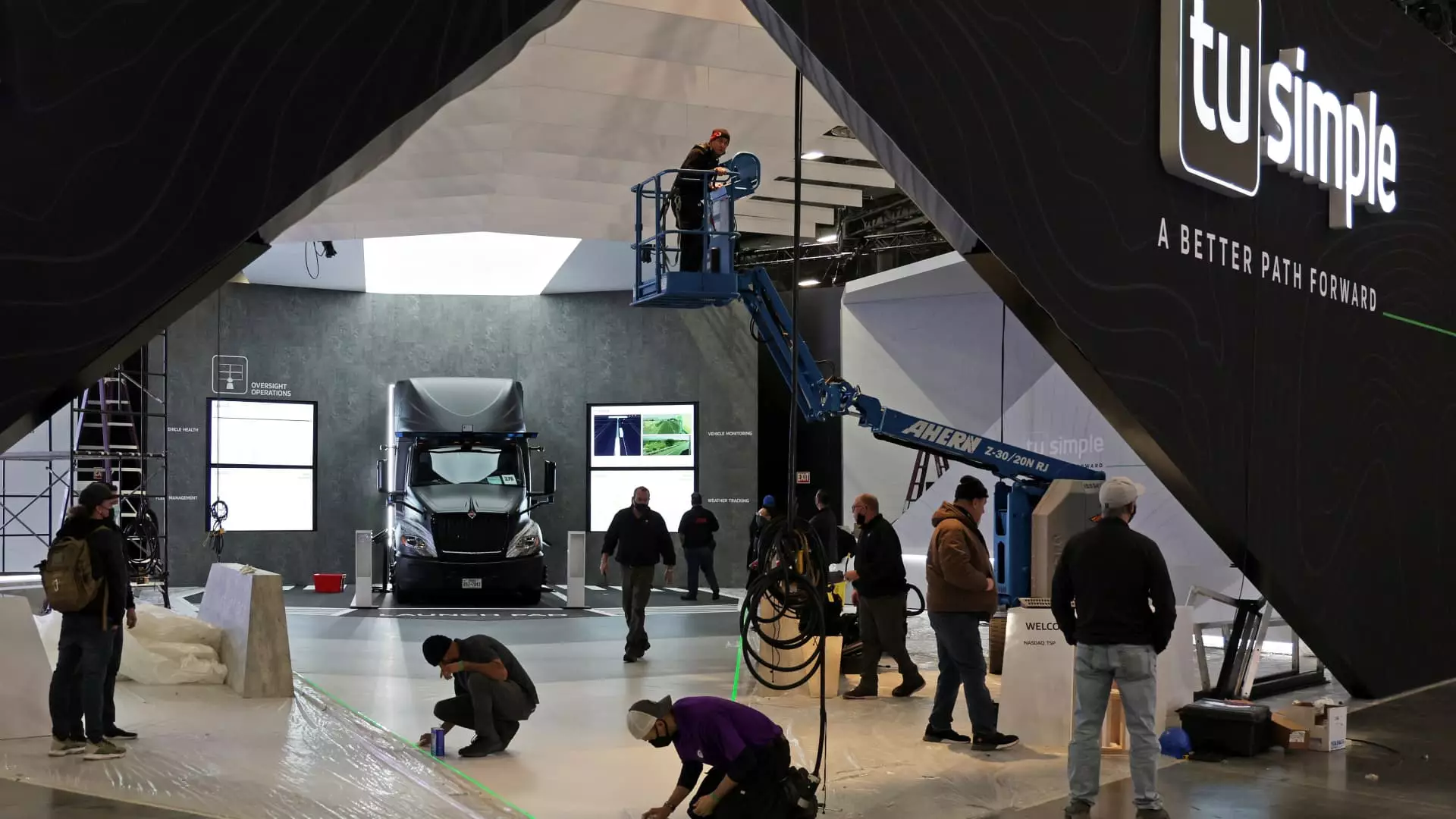In a surprising turn of events, TuSimple, once a prominent name in the realm of autonomous trucking, has rebranded itself as CreateAI. This strategic pivot towards the realms of video gaming and animation indicates the company’s response to the challenges it faced in a rapidly evolving market. The announcement coincided with the shutdown of General Motors’ Cruise robotaxi service, highlighting a broader trend of self-driving startups contending with harsh realities. In navigating these changes, CreateAI aims to redefine its identity and explore new revenue avenues.
The decision to transition from autonomous trucking to a focus on animation and gaming reflects the company’s struggles under the weight of legal woes and delisting from the Nasdaq earlier this year. CEO Cheng Lu, who rejoined the company after a tumultuous departure, is optimistic about the future, projecting a break-even point by 2026. This optimism is underpinned by their venture into the realm of video game development, particularly an upcoming game based on the famed martial arts novels by Jin Yong. Cheng asserts that, with projected revenue reaching “several hundred million” by 2027 after the launch of a full version of the game, the shift appears well-timed to attract new investors and reinvigorate the brand.
The financial numbers released prior to the rebrand reveal the stark reality of TuSimple’s operations. With a reported loss of $500,000 in the first three quarters of 2023 and a whopping $164.4 million spent on research and development, it became imperative for the company to explore new avenues. By leveraging its existing technology in generative AI, the rebranded CreateAI claims an innovative base from which it can launch into the gaming sector. The capabilities that once defined its autonomous driving software are now viewed as assets in creating engaging AI-driven experiences in video games.
The introduction of Ruyi, an open-source AI model for visual work, marks a significant milestone for CreateAI. By making this model available via the Hugging Face platform, the company positions itself within a competitive ecosystem that has increasingly embraced generative AI technologies, reminiscent of OpenAI’s ChatGPT. Ruyi’s development suggests that CreateAI is not merely pivoting to a different industry; it is working to establish itself as a thought leader in the evolving intersection of gaming and artificial intelligence.
Cheng’s vision reflects a forward-thinking strategy to ensure that CreateAI thrives in a market that has become notoriously challenging for traditional players. He has indicated plans to expand the workforce from 300 to around 500, signaling a commitment to scaling operations and amplifying their technological capabilities. Moreover, the company has already announced an alliance with Shanghai Three Body Animation to develop projects based on the acclaimed science fiction series, “The Three-Body Problem,” highlighting their intent to operate not just in the existing gaming market, but also in adapting popular narratives into immersive experiences.
Despite the optimistic outlook, CreateAI faces numerous challenges, particularly in balancing innovation with regulatory hurdles. U.S. restrictions on Chinese access to advanced semiconductor technologies underscore the complexities inherent in international business operations for tech firms. Cheng’s reassurances regarding their cloud computing strategies, which involve a mix of providers from both China and elsewhere, may not fully alleviate concerns regarding geopolitical tensions that could impact their technological growth.
Furthermore, while the goal of reducing the costs of triple-A game production by 70% over the next several years is ambitious, it remains to be seen whether this can be achieved without sacrificing quality. The gaming industry demands high standards, and the pressure to deliver engaging and immersive content is significant.
Ultimately, the rebranding of TuSimple to CreateAI represents a decisive moment for the company as it seeks to redirect its future. The proposed ventures into gaming and animation may offer a fresh start and new financial opportunities, but the landscape remains fraught with challenges. As CreateAI embarks on this path, it must navigate the complexities of an evolving tech market while sustaining innovation and maintaining stakeholder confidence. Time will reveal whether this bold pivot will flourish and elevate the company from its troubled past into a promising future.

